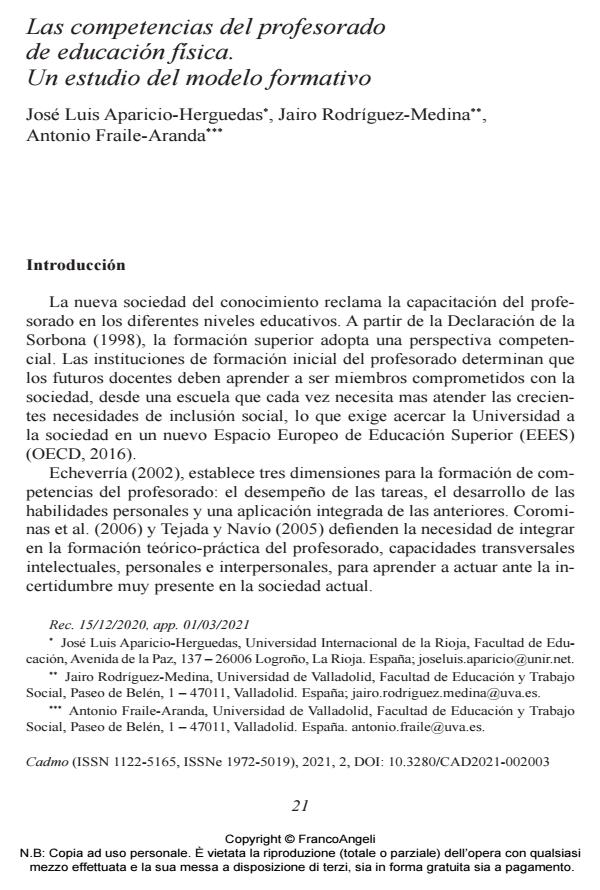Las competencias del profesorado de educación física. Un estudio del modelo formativo
Titolo Rivista CADMO
Autori/Curatori José Luis Aparicio-Herguedas, Jairo Rodríguez-Medina, Antonio Fraile-Aranda
Anno di pubblicazione 2022 Fascicolo 2021/2
Lingua Spagnolo Numero pagine 11 P. 21-31 Dimensione file 161 KB
DOI 10.3280/CAD2021-002003
Il DOI è il codice a barre della proprietà intellettuale: per saperne di più
clicca qui
Qui sotto puoi vedere in anteprima la prima pagina di questo articolo.
Se questo articolo ti interessa, lo puoi acquistare (e scaricare in formato pdf) seguendo le facili indicazioni per acquistare il download credit. Acquista Download Credits per scaricare questo Articolo in formato PDF

FrancoAngeli è membro della Publishers International Linking Association, Inc (PILA), associazione indipendente e non profit per facilitare (attraverso i servizi tecnologici implementati da CrossRef.org) l’accesso degli studiosi ai contenuti digitali nelle pubblicazioni professionali e scientifiche.
The training of competences requires the application of reliable instruments that allow to check their development during teacher training. The present study tries to evaluate the metric characteristics of a measurement instrument applied in the training of transversal and teacher competences of physical education teachers, and to check if its internal structure conforms to the theoretical models reviewed in the literature. 1104 university students (59.78% men and 40.22% women) from 20 Spanish higher education centers participate. An exploratory factor analysis is carried out from a questionnaire on the Perception of Physical Education Teaching Competencies. The results showed a teacher training model that integrates the development of transversal and teaching competences around three factors. The pedagogical advantages of the formative model are discussed in line with the revised theoretical models, its suitability for the competence development of students and future teachers, and their professional development.
Parole chiave:exploratory factor analysis, teaching competences, physical education, competences assessment, teacher training.
José Luis Aparicio-Herguedas, Jairo Rodríguez-Medina, Antonio Fraile-Aranda, Las competencias del profesorado de educación física. Un estudio del modelo formativo in "CADMO" 2/2021, pp 21-31, DOI: 10.3280/CAD2021-002003